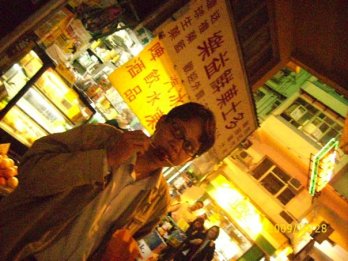Known for covering Western hits, Filipino musicians in Hong Kong may soon have to play their swan song.

In August 2008, experimental Filipino pop rock band Up Dharma Down challenged Hong Kong’s hip crowd to define their music.
Beyond the Cavern in trendy Lan Kwai Fong, however, dozens of other Filipino bands were playing to less appreciative crowds, if at all.
Research suggests that Filipino musicians, mainstays in the nightclubs and beer gardens of the world, are steadily losing their appeal. Lee William Watkins, who has a doctorate in musicology from Hong Kong University, says employers in Hong Kong now turn down Filipino applicants. Those that do get hired are treated pretty much like human jukeboxes, just part of the bar’s décor.
Since there are so many of them, Filipino musicians—and Filipino migrant workers in general—are often treated shabbily by their employers. They are seen as inexpensive, expendable, even troublesome substitutes who pale in comparison to the black musicians that bar managers and patrons now prefer.
Watkins writes in the April (2010) issue of UP’s Humanities Diliman journal that musician contracts are hardly binding and can be canceled on a whim. He also writes of musicians being let in through the back door to play for crowds that often ignore them.
In one night club that Watkins visited, “Patrons were sitting at tables with their backs to the band, and the frustration on the faces of the band members was palpable.
But that is probably how migrants and musicians have always been treated. What is alarming, especially for a nation that has an informal policy for exporting labor, is that Filipino musicians now seem to be a victim of their own success. Best known for their faithful renditions of Western hits, they are now being edged out by black and white musicians, whom employers see as more genuine.
With Hong Kong’s growing status as a world city, it is now easier to hire a musician straight from, say, a Chicago jazz club, instead of one from Manila skilled at imitating Chicago jazz. After all, if the idea is to emulate Western nightclubs, then hiring Western musicians makes it easier to sell the illusion.
Ironically, it was the Filipino’s ability to mimic Western music that made him popular, even influential, in the music scenes of Shanghai, Hong Kong, and Macau since the 1800s. The mimetic genius may have been an advantage up to the late 1990s. But with black and white musicians already available in Hong Kong, Filipinos are becoming superfluous.
Given that the focus during the past decades has been imitating Western music, Filipino musicians have hardly been able to develop an original repertoire. A quick look at the sample repertoire on the website of Harmony Productions, a Filipino-run talent management service in Kowloon, shows a veritable rundown of Top 40 hits from the 1960s to 1990s.
There are a few Chinese songs in the mix, but the rest are the same songs Filipinos have been singing ever since variety shows and singing competitions have been on television.
While bands like Up Dharma Down can play original music to appreciative crowds, they are based in Manila and are not subject to the Western song lists imposed by Hong Kong nightclub owners. Those who are are trapped between soft rock and a hard place. They can keep playing songs from their Western repertoire in places that still accept Filipinos; or they can get out of Hong Kong.
With limited song choices and little opportunity to indulge their creativity, Watkins writes that “musicians perform merely out of duty and not passion.”
Performing by rote and treating the show as a job, says a Chinese musician Watkins quoted, makes the performance bland. This makes it even harder to sell Filipino acts.
Beyond the music, the disdain for Filipino musicians also comes from racial discrimination. Because they are brown and poor, Filipinos have a low status in Hong Kong. Musicians are even lower still. Aside from entertainment, their talent has little value in Hong Kong’s consumerist society.
Watkins adds that with migrants from developing countries flocking to Hong Kong, the Chinese “feel threatened and encroached upon.” The Chinese not only have to compete for physical space with Filipino migrants, their presence also calls attention to the poverty and political instability in the region. Says Watkins, “These remind the Hong Kong Chinese of how fragile their safety and routine existence is.”
Despite all that, their talent—and Hong Kong’s continued fascination with Western music—sets Filipino musicians apart and boosts their status slightly, albeit as an agent of Western culture. Of course, this is of little consolation to those who have to sing for their supper.

—
Published in the August 2010 issue of China Business Philippines
